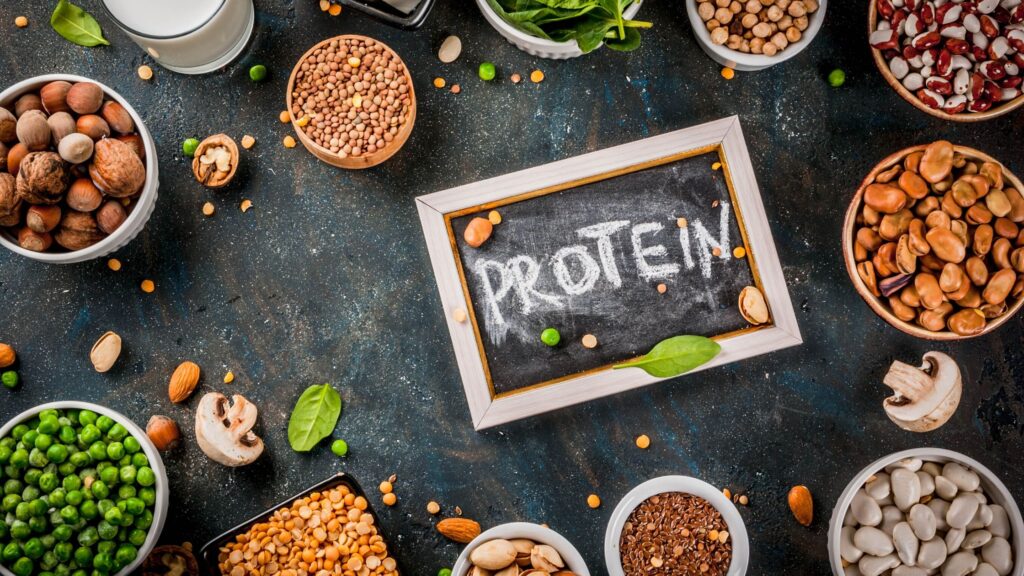With so much time now spent at home, many of us are battling with a desire to snack in the evenings.
We’re all aware that these extra goodies can expand our waistlines, but as we settle into our familiar evening routines, the urge can be so strong that it just feels impossible to stop ourselves from snacking.
This can feel demoralising if we want to reduce our size and are doing the best we can.
Failing in our best intentions can lead to self-criticism and even name-calling (we really can say horrible things to ourselves!). Maybe we’re trying to motivate ourselves – but has name-calling ever really worked?! (Actually, there are very good reasons why it doesn’t – a subject for another post!)
The intention of such self-criticism is well-meaning: it is important that we continue to prioritise our physical health. Yet, it’s equally important that we look after our emotional health by being kind and compassionate to ourselves.
More than this, kindness and compassion are more effective tools in helping us to change our habits.
As are knowledge and understanding.
For each of us, our relationship with food is unique. It can also be complex, and emotive.
If the habit feels very ingrained, it may be that more comprehensive or tailored support is needed to help us to get to the root of what’s driving us to snack. However, there are certain universal reasons for snacking that we can begin to address right now.
Here are 7 questions you can ask yourself to gain awareness of how to stop yourself snacking in the evening:
1. Is my body missing something?
Let’s get physical, first of all.
Our bodies require a balance of nutrients to function healthily.
Peer-reviewed research has identified that we have more than one hunger in order to address a biological need for certain key nutrients: protein, carbohydrates, fat, sodium and calcium.
It is believed these hungers are supported by our taste receptors for bitterness, saltiness, sourness, sweetness and (the lip-smacking savoury taste of) umami; umami supports our hunger for protein.
Our modern food environments are rich in energy (carbs and fat) and low in protein, which means we may end up overeating fat and carbohydrates in order to meet our instinctive protein requirement – even more so because the ultra-processed foods that abound are foods that have been modified to give them an umami flavour. This tricks our taste receptors into thinking we’re selecting something high-protein that doesn’t actually satisfy our instinctive protein-hunger.
So, if we’re noticing a very particular craving or ‘hunger’ sensations in our gut at least 20 minutes after eating then it could be that our body is wanting more of a particular nutrient.

As we start to get in tune with our instinctive hungers, it can be helpful to think about what we tend to eat for our main meals. For example, we might benefit from including more calcium-containing foods. Or if our diet is low in protein, by including high protein foods, we can satisfy our protein hunger sooner, which reduces appetite, and means we can naturally eat less of the carbs and fat. Yet, importantly, we also need to be wary of overeating protein as too much protein (more than our instinctive requirement) promotes more rapid ageing.
Our instinctive protein requirement will vary depending on factors such as our age, sex, ethnicity and activity level so we will differ from one person to the next.
As we learn to listen to our body and balance our nutrients instinctively, fibre is important as it both fills us up and also feeds our gut bacteria, which puts the break on our appetite.
If you’re interested you can read more about this fascinating research here.
As with anything, diet is about balance so take care in any changes you decide to make and seek dietary advice if you’re not sure. Having an awareness of how our appetite works and how the food industry modifies our food can really help us as we start to listen to our body and learn instinctively to satisfy our nutrient hungers.
2. Do I get cravings for something sweet?
Even in the middle ages, there was a belief in having something sweet ‘to close the stomach’ at the end of a meal.
There are many possible reasons for this ‘need for something sweet’. There might be an emotional connection – maybe a fond or comforting memory of childhood.
It might be our body seeking to satisfy our taste receptor for sweetness, which can be felt in the excitement in having a change of flavour.
There is also our evolutionary drive for foods with high energy – useful for cave people (who lived in a very different food environment), not so helpful for those of us with excess body-fat.
If we don’t satisfy this kind of craving, we may find ourselves snacking randomly on other things in an effort to feel satisfied.
That said, it doesn’t mean the craving is an instruction to go all out on a giant bag of chocolatey treats! It can be possible to satisfy the craving by adding a sweet element to our meal (a bit of honey or fruit-based sauce, for example).
Alternatively, if we want a feeling of comfort, finishing off with something like a herbal tea, a cup of natural yoghurt or a mug of warm oat milk can do the trick.
And as we start to get in tune with our body so that we can, throughout the day, instinctively satisfy our hunger for carbohydrates – and quite possibly other micronutrients of various vitamins and minerals (all found in fruit, vegetables and whole grains) – we may find that the evening cravings reduce.
3. Am I using food to bond with my family?

From time immemorial, we humans have used food to connect with, and feel close to, other people.
We can still use food in this important and nourishing way, but re-exploring how we do it can help us to reduce our body-size.
Lockdown provides the perfect opportunity for leisurely family meals (meals made longer by slowing down rather than eating more).
There may also be things we can do to make mealtimes more of a bonding occasion, such as dinner games or preparing the meal together. Then, in the evening, hot drinks could replace snacks, and sharing an activity – such as doing a jigsaw together – is a simple way for a family or couple to feel close.
4. Has food become my companion because I’m feeling lonely?
For many of us living on our own, or feeling alone, food can be something we turn to in order to ease the discomfort of loneliness. Yet, there are other really nice things we can do for ourselves that will be more effective in lifting our mood. Things like having a relaxing bath, exploring a new hobby, reading an engrossing book or selecting to watch a really engaging film may take more of an initial effort but can be surprisingly uplifting to our spirits.
5. Am I just bored?
“Mum, I’m bored, what can I do?”
Remember saying this when you were little? Children really don’t like being bored. Neither do adults; we’ve just found ways of resolving our boredom with quick, accessible fixes; one of which includes food. But there are other ways of quickly resolving our boredom that are kinder to our waistline. Particularly good are things we can do with our hands such as drawing, doodling, colouring, knitting, etc.
If you tend to snack when relaxing or watching TV, keeping an activity like this close at hand can become your easy ‘go-to’ for banishing boredom.
6. Is it food FOMO?

When someone brings out the treats, it can be quite natural to get that FOMO feeling … fear of missing out. Evolutionary drive, the temptation of something that appeals to all our senses, wanting to be included – all these things can cause us to tuck in whether or not we’re really hungry. This is where a mindful practice can be really handy.
If we’re aware of food FOMO, it means we can pause to ask ourselves:
Do I really want or need this snack?
We can check in with how our stomach feels:
Am I actually hungry?
How will I feel after eating it?
Would a mint tea be more satisfying instead?
If we ask ourselves these questions, we may still decide that we want the snack, but the important difference is we’re choosing mindfully.
We might well find we eat less of what’s being offered and, if we’re not hungry, we could find we choose differently rather than acting on autopilot.
7. Am I habit-snacking?
Habits are powerful things.
It can be very easy to get into a habit (particularly one with sensory pleasure) as our minds are very good at associating one repetitive behaviour with another.
If you always wash the dishes straightaway after dinner, you may feel discomfort if one night you decide to leave them till later in the evening – the thought might keep nagging at you while you’re trying to watch a film: this is your brain wanting you to maintain the habit.
Similarly, if you tend to drink alcohol every evening, you might have a strong feeling that something’s missing if you decide to have a night off.
If you snack on crisps every evening while watching TV, you’ll notice an urge for them when you sit down and switch on the set.
Habits are powerful but they can be changed. Good ways to start include:
1. Changing the pattern.
For example, if you usually have a bowl of crisps within easy reach. Place the bowl so that you have to use a different hand than you usually would. Also, set the bowl just slightly out of easy reach so that you have to stretch slightly to reach it.
Pattern changes like these help to move us out of autopilot so that we’re more mindful of what we’re doing.
This helps us to reduce the habit and opens the door to changing it.
2. Change part of the habit.
For example, if you’d like to reduce the amount of beer or wine that you drink, use a beer or wine glass to drink water instead. The shape and feel of the glass will be part of the habit so this can help to satisfy the craving.
It’s easier to change one part of the habit than the whole thing in one go.
The reasons for snacking can be manifold and will be different for each of us.
If you’d like to learn how to stop yourself from snacking in the evening, the most important thing you can do is, with kindness, compassion and curiosity, to bring your full awareness to what you’re doing. Awareness nudges open the door to change.
For more insights that will help you to build your self-knowledge, self-understanding and self-compassion, follow us at NoWeigh.

Alison Easton
Director of Clinical and Creative Developmen


